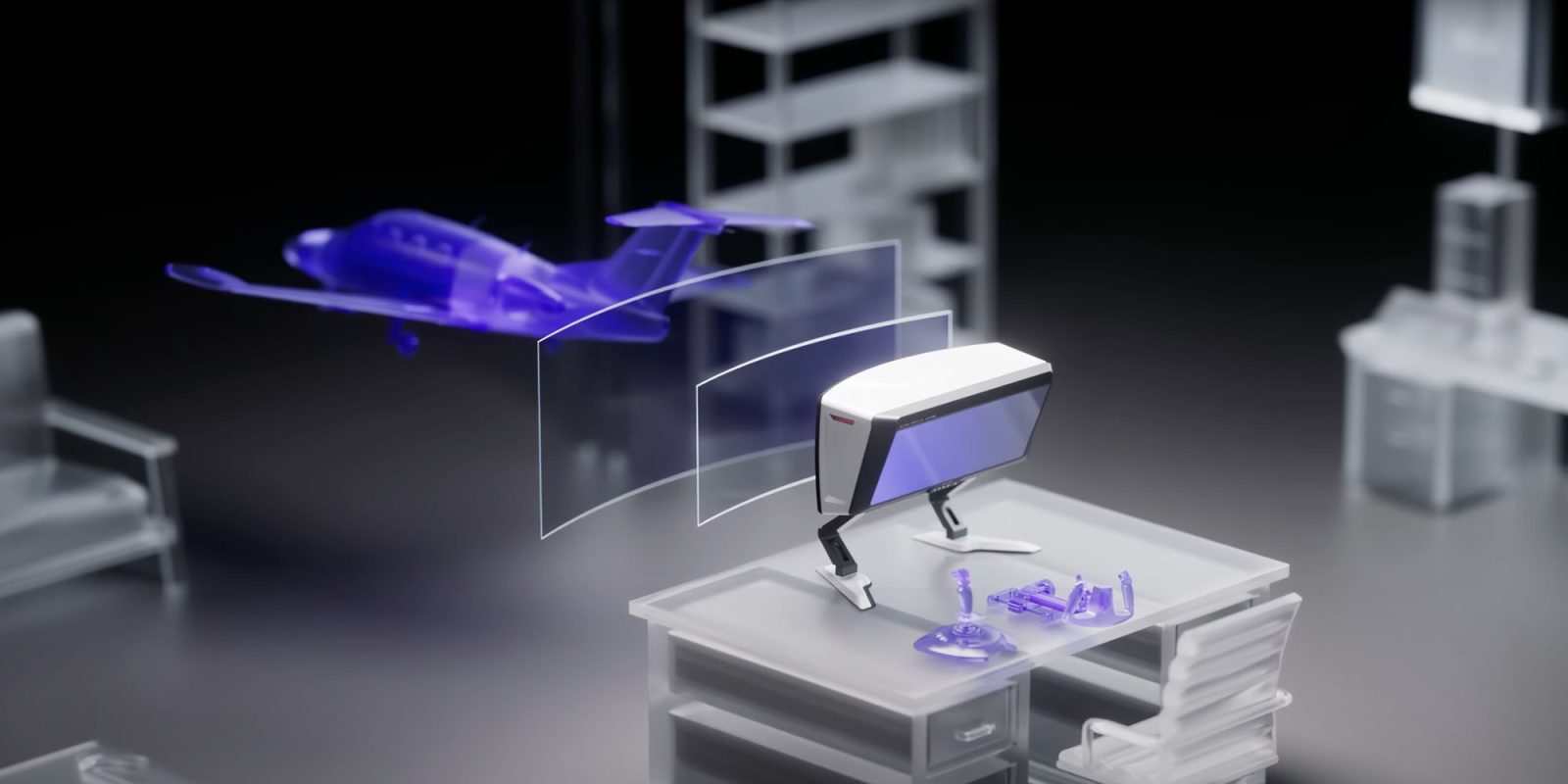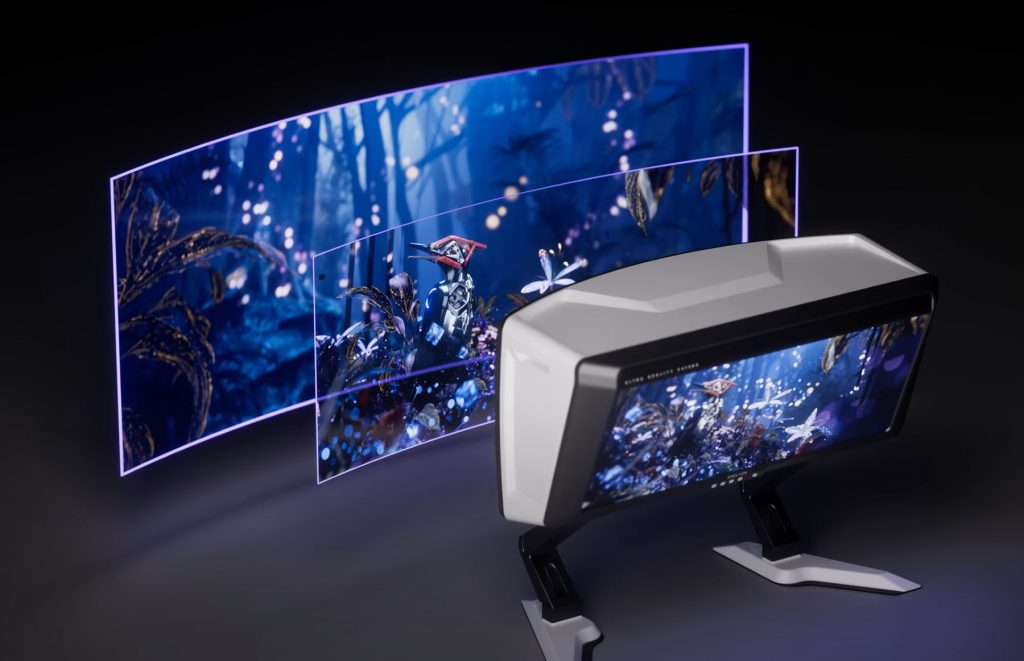
The greatest attraction for me about Vision Pro is being able to have huge virtual monitors for both work and entertainment, but the downside is the discomfort of wearing one for an extended time. The Brelyon Ultra Reality Extend is a funky new monitor tech that aims to solve this problem.
You don’t have to wear anything – just sit in front of a monitor, which can project a virtual display as wide as 122 inches from a much smaller physical display …
Virtual monitors
While you can get a huge virtual monitor experience from an affordable glasses product costing just a few hundred dollars, it falls short in a number of ways. Most notably, the virtual monitors aren’t fixed in space, and have an annoying tendency to wander around in your field of view, requiring constant re-centering.
Additionally, you can’t easily see your keyboard and trackpad, especially if you need corrective lenses.
Vision Pro delivers a really high-quality virtual monitor experience, also allowing you to pin them to specific positions within your physical environment. The drawback, however, is that the unit starts to feel both hot and heavy after an hour or so of usage.
Brelyon Ultra Reality Extend immersive monitor
This new monitor tech, on show at CES, aims to deliver a huge immersive monitor experience without the need to wear anything at all – you just look at/through a physical monitor in front of you.
The device not only gives a virtual display much larger than its physical size, but can also create a limited degree of 3D effect, with different layers of image.

Engadget’s Sam Rutherford got a chance to try it, and was impressed.
This allows the monitor to defy its dimensions, because even though it’s much chunkier than a typical display, the view inside is absolutely monstrous. From a 30-inch frame, the Ultra Reality Extend provides a virtual display that’s equivalent to a curved 122-inch screen. Meanwhile, its 4K/60Hz resolution uses 1-bit of monocular to deliver spatial content that looks closer to 8K with elements of the scene capable of looking closer or further away depending on the situation.
When I watched a game clip from Spiderman, the trees and light poles whipping past in my face felt so real I started to flinch subconsciously. Then in other scenes, Brelyon’s monitor was able to separate different layers of the content to make snow in the foreground look blurry as it whipped across the screen while characters in the distance remained tack sharp. It’s rather uncanny because the effect is visceral in a way that games and movies on flat screens just can’t match.
It’s currently clunky and even more expensive
What the monitor doesn’t offer is portability. The device is huge, with the physical screen measuring 30 inches diagonally, and a depth very much resembling an old-school CRT monitor.
It also costs about twice as much as Vision Pro, with a target price in the $5000 to $8000 range, depending on how many a company buys.
At that kind of price, one of the most likely applications is flight simulators. In that field, an $5-8k price tag for something with a 3D effect and an immersive feel looks positively cheap.
But it’s another possible direction
This is not something I’d even remotely consider buying, and definitely doesn’t meet my personal Vision Pro use-case of being able to travel light while still having huge monitors when working away from home.
But what does make it interesting is that it represents another potential direction for this type of technology. This first-generation unit might be viewed much like a LISA – a massive, non-portable device with a crazy price-tag. But we later got the PowerBook and iBook, and today have the MacBook Air.
Quite how quickly this immersive monitor tech will develop remains to be seen, but I’m certainly happy to see another approach to the problem underway. Check out the video below.
Image: Brelyon
FTC: We use income earning auto affiliate links. More.





